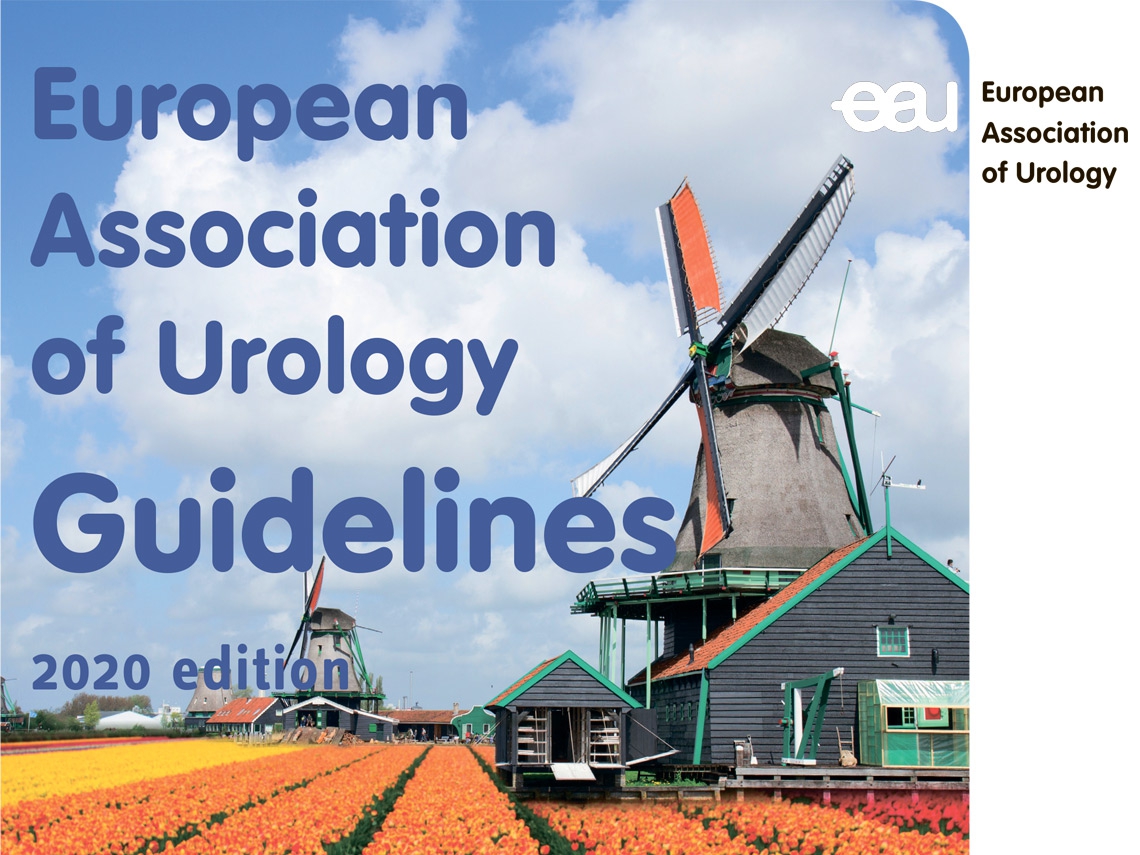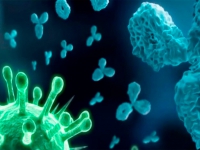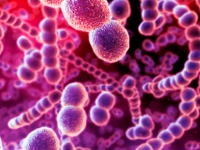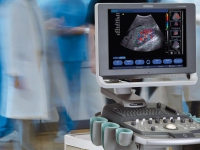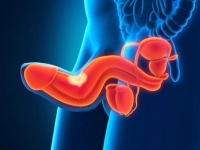European
Association of
Urology
Guidelines
European Association of Urology Guidelines 2020
Introduction
We are honoured to present the 2020 edition of the European Association of Urology (EAU) Guidelines, the most comprehensive, continuously updated, guidelines available for urologists and clinicians from related specialties. Produced by a dedicated Guidelines Office, involving approximately 250 international experts and endorsed by 72 national and professional societies around the world, the EAU Guidelines are internationally recognised as an excellent, high-quality resource for assisting clinicians in their everyday practice.
For the 2020 edition of the EAU Guidelines, we are proud to present the new EAU Guidelines on Sexual and Reproductive Health which consolidates the work of the former Male Infertility, Male Sexual Dysfunction and Male Hypogonadism Panels. Additionally, numerous guideline recommendations have been updated.
Going forward, the EAU Guidelines Office has a number of plans in place for the coming year, and beyond. We are delighted to announce the formation of a new EAU Guidelines Panel on Non-neurogenic Female LUTS under the leadership of Mr. C.K. Harding (Chair) and Prof.Dr. M.C. Lapitan (vice-chair). The Panel has already begun work on producing the new guideline for publication in 2021. Additionally, the ad-hoc EAU Guidelines on Urethral Strictures, Chaired by Prof.Dr. N. Lumen will also conclude their work in time for publication in 2021.
A further goal for the Guidelines Office in 2020 is a commitment to increasing patient involvement in Guidelines development. Our ultimate aim is to establish an effective framework that can ensure that the voices of patients are captured in the development of future guidelines recommendations in a meaningful and non-tokenistic manner. The EAU Guidelines Office believes that meaningful patient engagement will result in recommendations that lead to better treatment compliance and improved health outcomes aiding the realisation of a truly patient-centred shared-decision making framework. This promises to be a challenging but worthwhile long-term endeavour.
Adherence to clinical guidelines, both national and international, is sub-optimal throughout Europe. The key to increasing adherence to Guidelines, is to understand what are the barriers to adherence, and what might facilitate effective implementation of recommendations. To address these problems, the Guidelines Office IMAGINE group have designed a two-phase programme to: (i) map practice and adherence to key Guideline recommendations across Europe in collaboration with the National Urological Societies; and (ii) to understand the barriers and facilitators to implementation of these recommendations. The IMAGINE project will begin in March 2020 and will facilitate the continued optimisation and harmonisation of urological practice across Europe, ultimately raising the level of urological care and improving patient outcomes.
The yearly publication of the EAU Guidelines would not be possible without the unwavering support of the EAU Executive Committee and Management team, our highly valued Guidelines Panels and young Guidelines Associates, our EAU membership and every user of the Guidelines globally. So, on behalf of the EAU Guidelines Office Board, thank you for your support and inspiration.
We hope you enjoy using the 2020 update of the EAU Guidelines!
Board members EAU Guidelines Office










The EAU Guidelines Office has set up dedicated Committees responsible for critical aspects of guidelines development.
Methodology section
Clinical guidelines development is one of the core activities of the European Association of Urology (EAU), with the 2020 Guidelines covering the majority of the urological field. The EAU clinical guidelines, which are updated based on systematic reviews (SRs) of the available clinical evidence, are developed to support clinicians in making informed decisions in their care of patients.
The Guidelines Office (GO), consisting of more than 300 clinicians, is responsible for the production of these documents. Their efforts are supported by a number of expert Committees, each with specific tasks and responsibilities
The EAU GO unified production methodology aims to:
- ensure scientific quality, accuracy and currency of information;
- promote sustainable quality improvement;
- contribute to the dissemination and implementation of all EAU Guidelines publications.
All EAU Guidelines can be accessed online through the Association website: www.uroweb.org/guidelines/. All full members of the EAU can collect print copies, of both the full text and pocket Guidelines, at EAU Annual meetings. A mobile app containing the Pocket guidelines is available for download for both iOS and Android devices.
Systematic Review development
The EAU GO have set up a management structure to support development of SRs involving young clinicians (Guidelines Associates) who are supported by methodologists and statisticians. These SRs are based on clinical questions prioritised by the Guideline Panel responsible for each topic and their findings are incorporated into the EAU guidelines as they become available. Benefits and harms of interventions are addressed in detail, both in the development stage of the clinical question and when review findings are being incorporated, and treatment recommendations formulated. Whenever possible, patient input is sought at both the development stage of the SR questions as well as when guidelines recommendations are being drafted. Patient organisations are invited to take part in review of the EAU Guidelines documents prior to publication. This is a rolling programme, with the ambition to address the majority of key clinical questions covered by the EAU guidelines.
All SRs are performed using standard Cochrane SR methodology: (http://www.cochranelibrary.com/about/about-cochrane-systematic-reviews.html).
Two independent reviewers screen abstracts and full texts, carry out data abstraction, assess risk of bias and do a GRADING exercise [1-4]. The results are presented in tables showing baseline characteristics and summaries of findings. Meta-analyses are performed only as part of a SR when several randomised controlled trials have addressed the same question and outcomes are reported homogenously. For lower level data, narrative syntheses of the evidence are provided. The Preferred Reporting Items for Systematic Reviews and Meta-Analyses (PRISMA) guidance is followed [5].
Independently of these SRs, each Guideline Panel has undertaken a separate systematic search, tailored to their individual guideline. These are broad searches (Scope/Horizon searches) which are developed to:
- ensure that the available clinical evidence is identified in a structured unbiased fashion;
- ensure that significant data are not missed;
- inform on the need to update guidelines documents;
- identify gaps in the literature and prioritise future systematic review activities.
The results of these searches are selected and assessed in a structured fashion by Guideline Associates and Guideline Panel members, although no detailed evidence summaries are produced. The search histories are available online in the Appendices and Publications sections of each guideline topic (www.uroweb.org/guidelines/).
Level of evidence and grading systems
For each recommendation within the guidelines there is an accompanying online strength rating form, the basis of which is a modified GRADE methodology [3, 4]. Each strength rating form addresses a number of key elements namely:
- the overall quality of the evidence which exists for the recommendation, references used in this text are graded according to a classification system modified from the Oxford Centre for Evidence-Based Medicine Levels of Evidence [6];
- the magnitude of the effect (individual or combined effects);
- the certainty of the results (precision, consistency, heterogeneity and other statistical or study related factors);
- the balance between desirable and undesirable outcomes;
- the impact of patient values and preferences on the intervention;
- the certainty of those patient values and preferences.
These key elements are the basis which panels use to define the strength rating of each recommendation. The strength of each recommendation is represented by the words ‘strong’ or ‘weak’ [7]. The strength of each recommendation is determined by the balance between desirable and undesirable consequences of alternative management strategies, the quality of the evidence (including certainty of estimates), and nature and variability of patient values and preferences. The strength rating forms will be available online.
Table 1: Level of evidence*
| Level | Type of evidence |
|---|---|
|
1a |
Evidence obtained from meta-analysis of randomised trials. |
|
1b |
Evidence obtained from at least one randomised trial. |
|
2a |
Evidence obtained from one well-designed controlled study without randomization. |
|
2b |
Evidence obtained from at least one other type of well-designed quasi-experimental study. |
|
3 |
Evidence obtained from well-designed non-experimental studies, such as comparative studies, correlation studies and case reports. |
|
4 |
Evidence obtained from expert committee reports or opinions or clinical experience of respected authorities. |
* Modified from [6].
References
- Atkins D. et al. Grading quality of evidence and strength of recommendations. BMJ. 2004; 328: 1490.
- Guyatt G. et al. Grading strength of recommendations and quality of evidence in clinical guidelines: report from an American College of Chest Physicians task force. Chest. 2006; 129: 174.
- Guyatt G.H. et al. What is "quality of evidence" and why is it important to clinicians? BMJ. 2008; 336: 995
- Guyatt G.H. et al. GRADE: an emerging consensus on rating quality of evidence and strength of recommendations. BMJ. 2008; 336: 924.
- Moher D. et al. Preferred reporting items for systematic reviews and meta-analyses: the PRISMA statement. J. Clin. Epidemiol. 2009; 62: 1006.
- Phillips B. et al. Oxford Centre for Evidence-based Medicine Levels of Evidence. Updated by Jeremy Howick March 2009.
- Guyatt G.H. et al. Going from evidence to recommendations. BMJ. 2008;p 336: 1049.
The following National Urological Associations endorse the EAU Guidelines:У:
National Societies Endorsements
The EAU Guidelines Office is most grateful for the continued support of the European Board of Urology.
Composition Guidelines Working Groups



